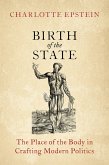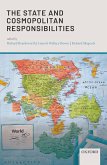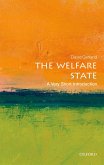The idea that society, or civilisation, is predicated on the "state" is a projection of present-day political ideology into the past. Nothing akin to what we call the "state" existed before the 19th century: it is a recent invention and the assumption that it is timeless, necessary for society, is simply part of its legitimating myth. The development, over the past three millennia, of the political structures of western civilisation is shown here to have been a succession of individual, unrepeatable stages: what links them is not that every period re-enacts the "state" in a different guise - that is, re-enacts the same basic pattern - but that one period-specific pattern evolves into the next in a path-dependent process. Treating western civilisation as a single political system, the book charts systemic structural change from the origins of western civilisation in the pre-christian Greek world to about 1800, when the onset of industrialisation began to create the conditions in which the state as we know it could function. It explains structural change in terms of both the political ideas of each period and in terms of the material constraints and opportunities (e.g. ecological and technological factors) that impacted on those ideas and which constitute a major cause of change. However, although material factors are important, ultimately it is the ideas that count - and indeed the words with which they were communicated when they were current: since political structures only exist in people?s heads, to understand past political structures it is imperative to deal with them literally on their own terms, to take those terms seriously. Relabelling or redefining political units (for example by calling them "states" or equating them with "states") when those who lived (in) them thought of them as something else entirely imposes a false uniformity on the past. The dead will not object because they cannot: this book tries to make their voices heard again, through the texts that they left but whose political terminology, and often whose finer points, are commonly ignored in an unconscious effort to make the past fit our standard state-centric political paradigm.
Dieser Download kann aus rechtlichen Gründen nur mit Rechnungsadresse in A, B, BG, CY, CZ, D, DK, EW, E, FIN, F, GR, HR, H, IRL, I, LT, L, LR, M, NL, PL, P, R, S, SLO, SK ausgeliefert werden.









